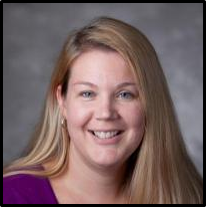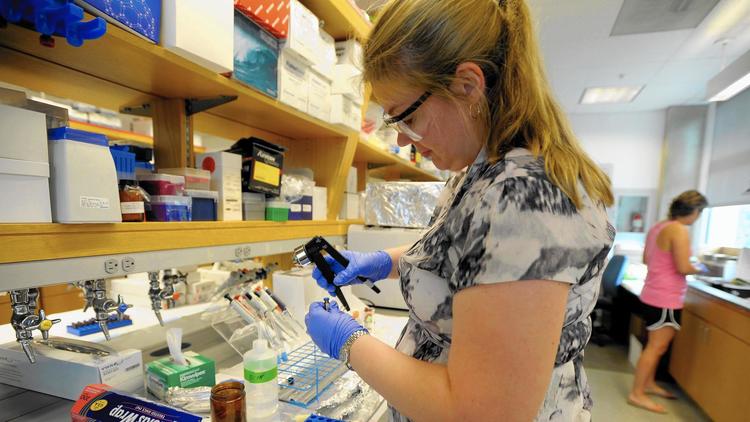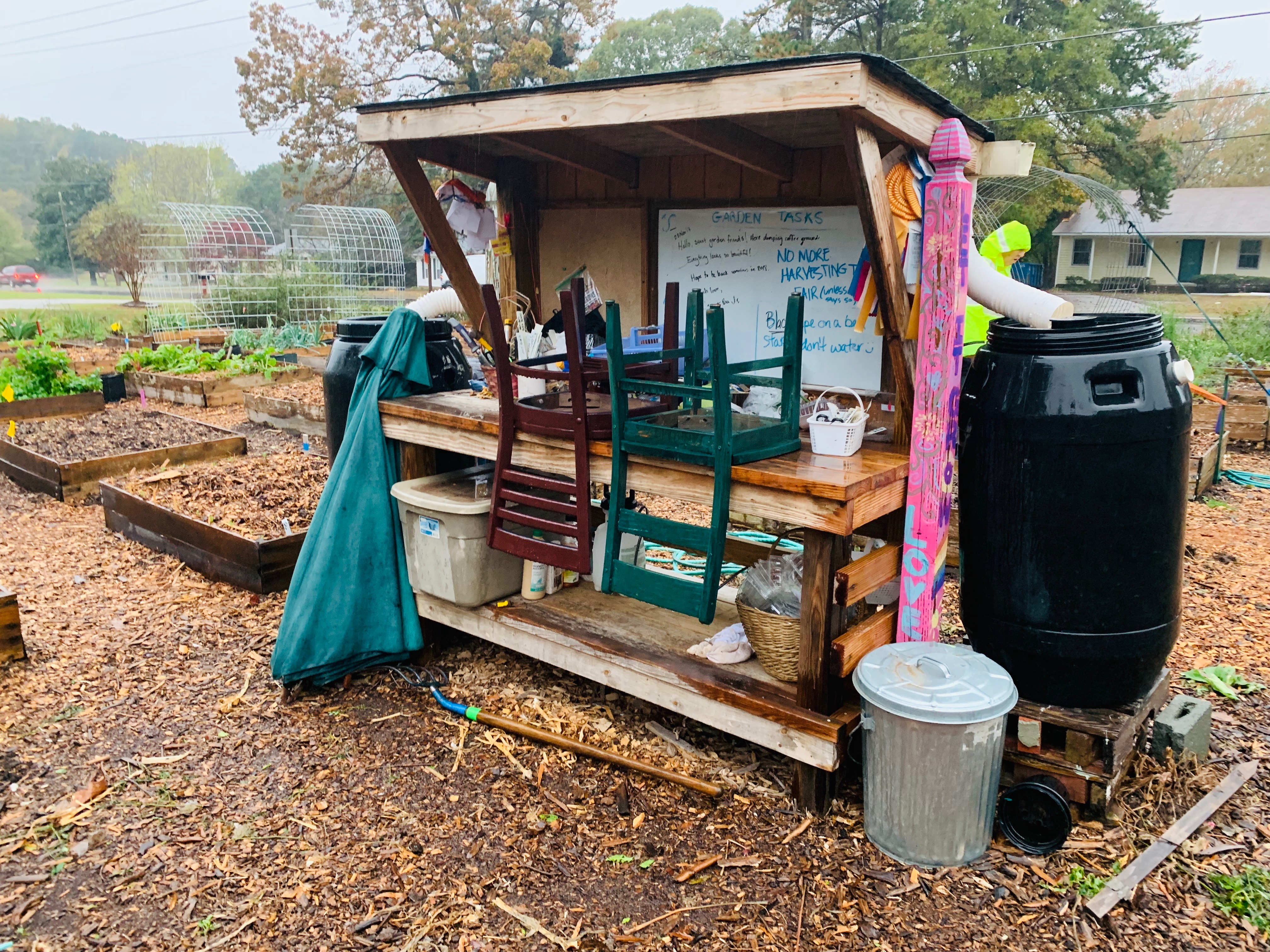In response to a request from members of the Waccamaw Siouan tribe in southeastern North Carolina after tests of tribal member’s soil revealed that detectable levels of some PFAS compounds, the Duke Superfund Community Engagement Core delivered dozens of garden buckets, gloves, pH meters, vegetable peelers, and other supplies that can help tribal gardeners and others limit their exposure to chemical contaminants in soil. This work is part of an ongoing partnership between the CEC and the Waccamaw Siouan STEM Studio to explore and address potential environmental health concerns related to chemical contamination of soil and drinking water among tribal members.

Background
Gardening is a great way to get your hands dirty and build bonds with your neighbors. Home-grown fruits and vegetables are also an affordable addition to your diet. Despite all the upsides, gardeners still should know about the risk of chemical contaminants like lead or PFAS winding up in their garden’s soil. The more gardeners know about these contaminants, the better they can protect themselves, their family, and friends.
Members of the Waccamaw Siouan tribe have had concerns about environmental contamination in their community and they reached out to UNC-Wilmington soil scientist Dr. E. Britt Moore to try and find some answers. This led to the “Soul Science” project where 100 households submitted soil samples from their homes for testing. Results varied, and while heavy metals were not a problem, the researchers did find detectable levels of certain PFAS compounds in the soil samples.
The Duke Superfund Community Engagement Core worked with Dr. Moore and tribal partners to help study participants understand their results and are planning a follow up study to test drinking water from the same study participants (most tribal members are on private well water).
What’s to be Done?
But in the meantime, tribal members with detectable PFAS in their soil are looking for guidance on what to do. Is there any health risk? Where did the PFAS come from? And what can I do about it? Some of the answers can feel unsatisfactory. Health risks due to exposure depends on a many different factors, and PFAS can come from a lot of different sources. But there are actions that Waccamaw Siouan gardeners and others concerned about relatively low levels of chemical contamination in soil can do to protect themselves.
Simple steps to reduce exposure include keeping soil damp to limit the dust in your garden and laying down mulch to keep soil in place. Wearing gloves and dedicated gardening shoes, and then removing those gloves, shoes, and dirty clothes before going inside can help limit the amount of soil you track inside where it will combine with household dust. This is important for kids especially, since they spend a lot of time on the floor and often put their hands in their mouths. Simple routine household cleaning can also help reduce exposure risks. Other actions like applying compost and keeping soil at a neutral pH can help limit how much heavy metals in soil are taken up by plants. And if you’re really concerned about a specific patch of soil, you can build a raised bed to separate that soil from clean soil you use to fill that bed.
Garden bucket giveaway
The Community Engagement Core worked with the Waccamaw Siuoan STEM Studio to deliver gardening and soil exposure reduction supplies to tribal members who were concerned about soil contamination. Supplies included a plastic gardening bucket, vegetable peeler, gardening gloves, pH meter, boot tray, face masks, and brief factsheets on how to use these supplies and other actions to limit exposure. CEC Director Elizabeth Shapiro-Garza and Community Engagement Coordinator Chiara Klein attended and helped out at the 2nd annual Waccamaw Siouan STEM Day on September 16, 2023, and distributed the garden buckets and other supplies.







